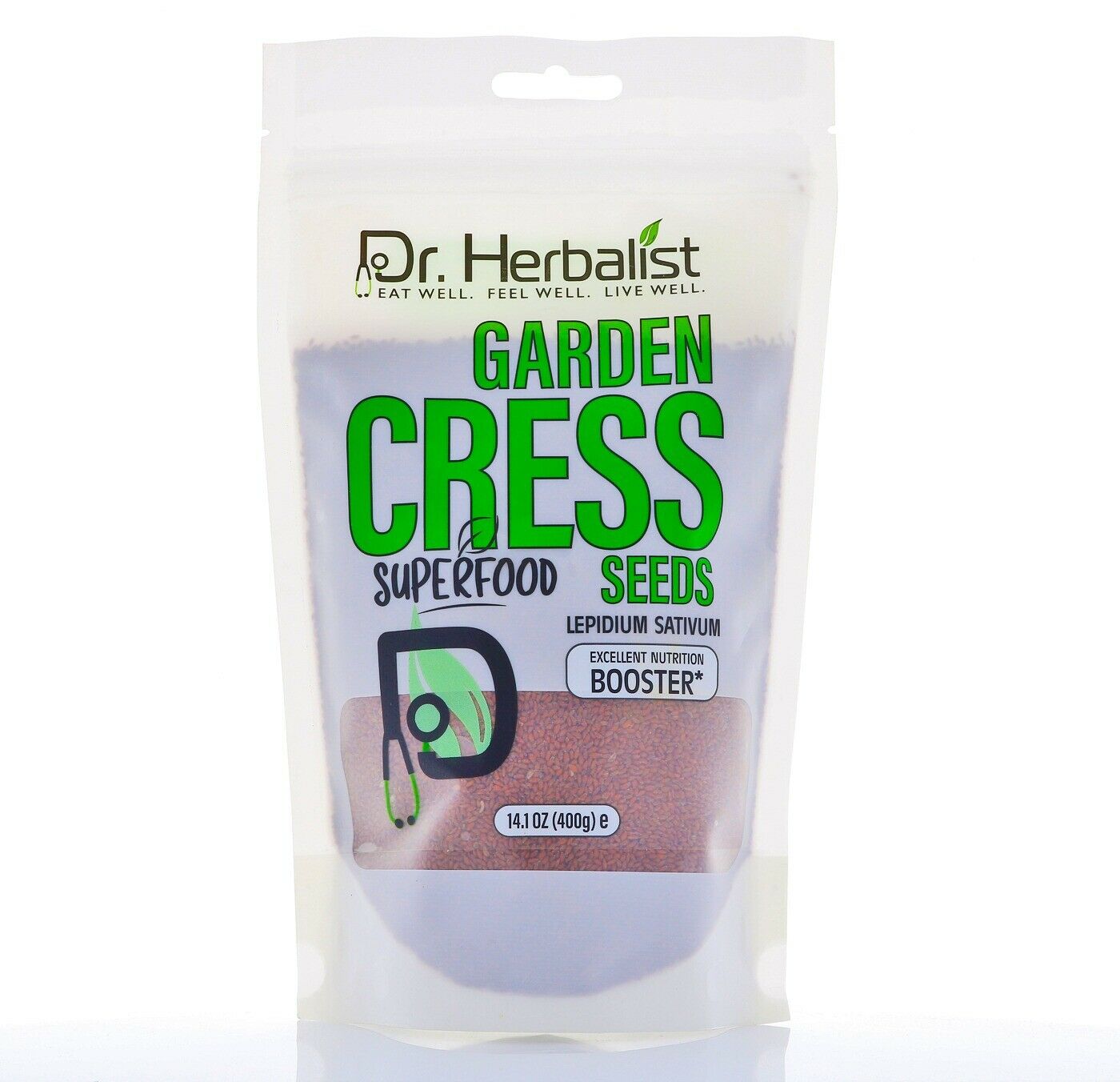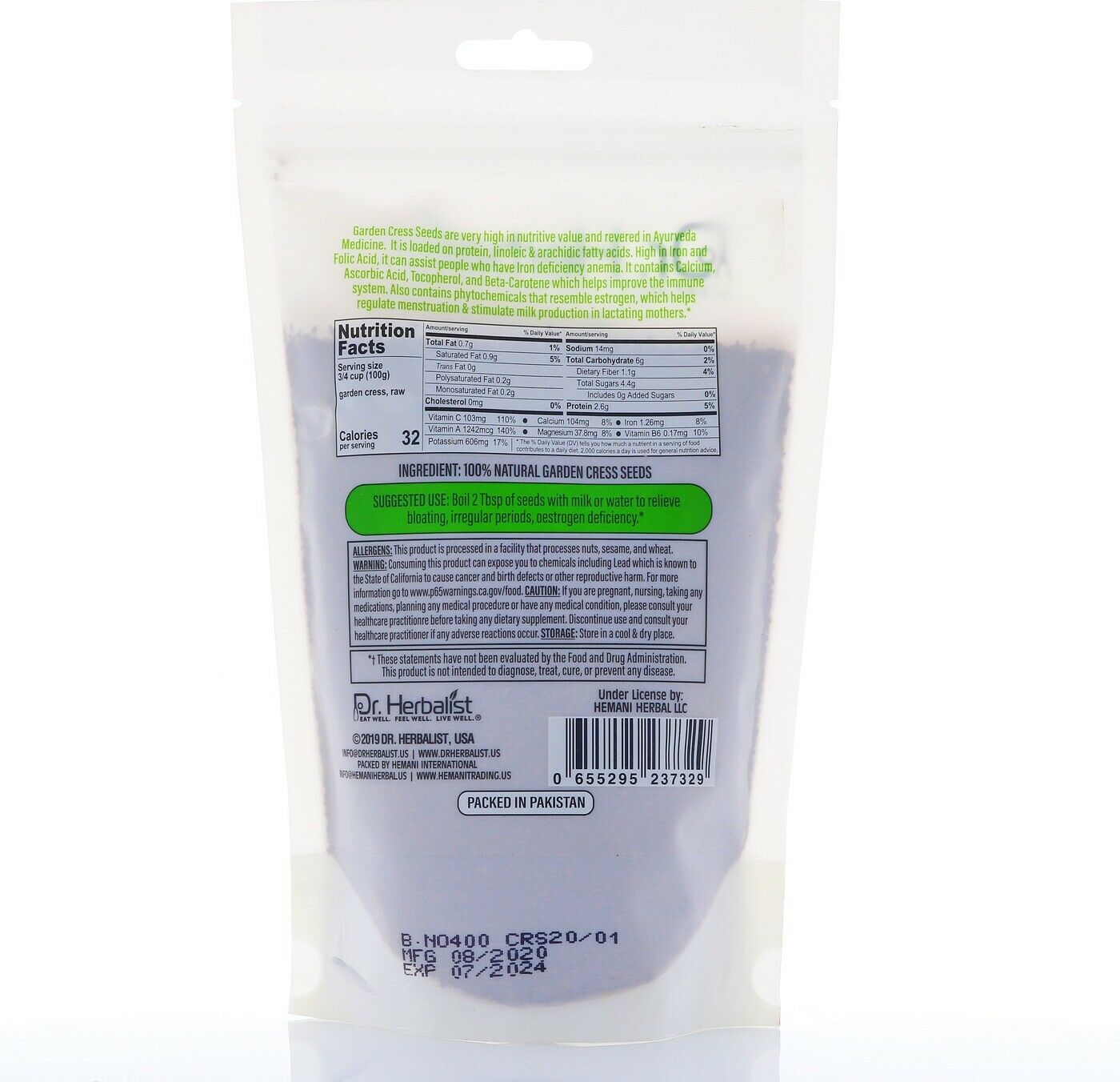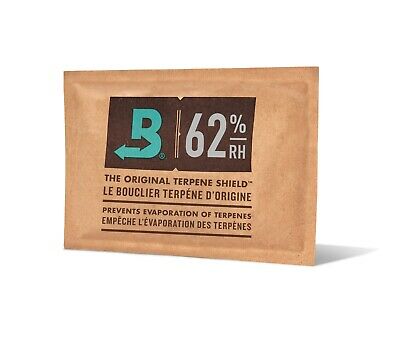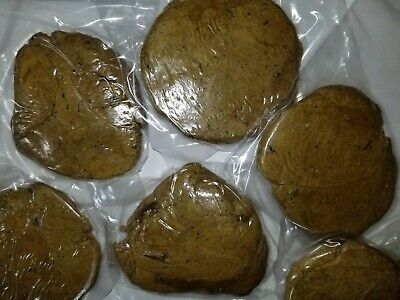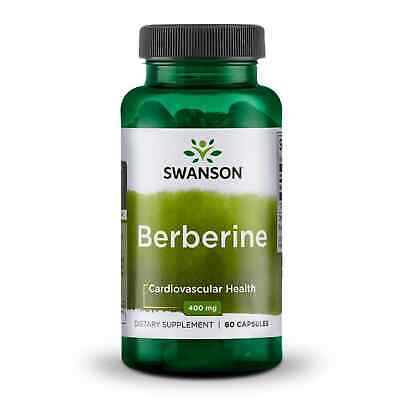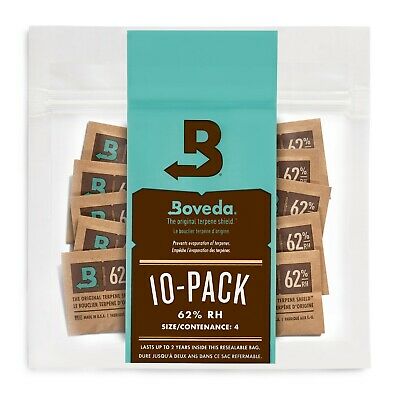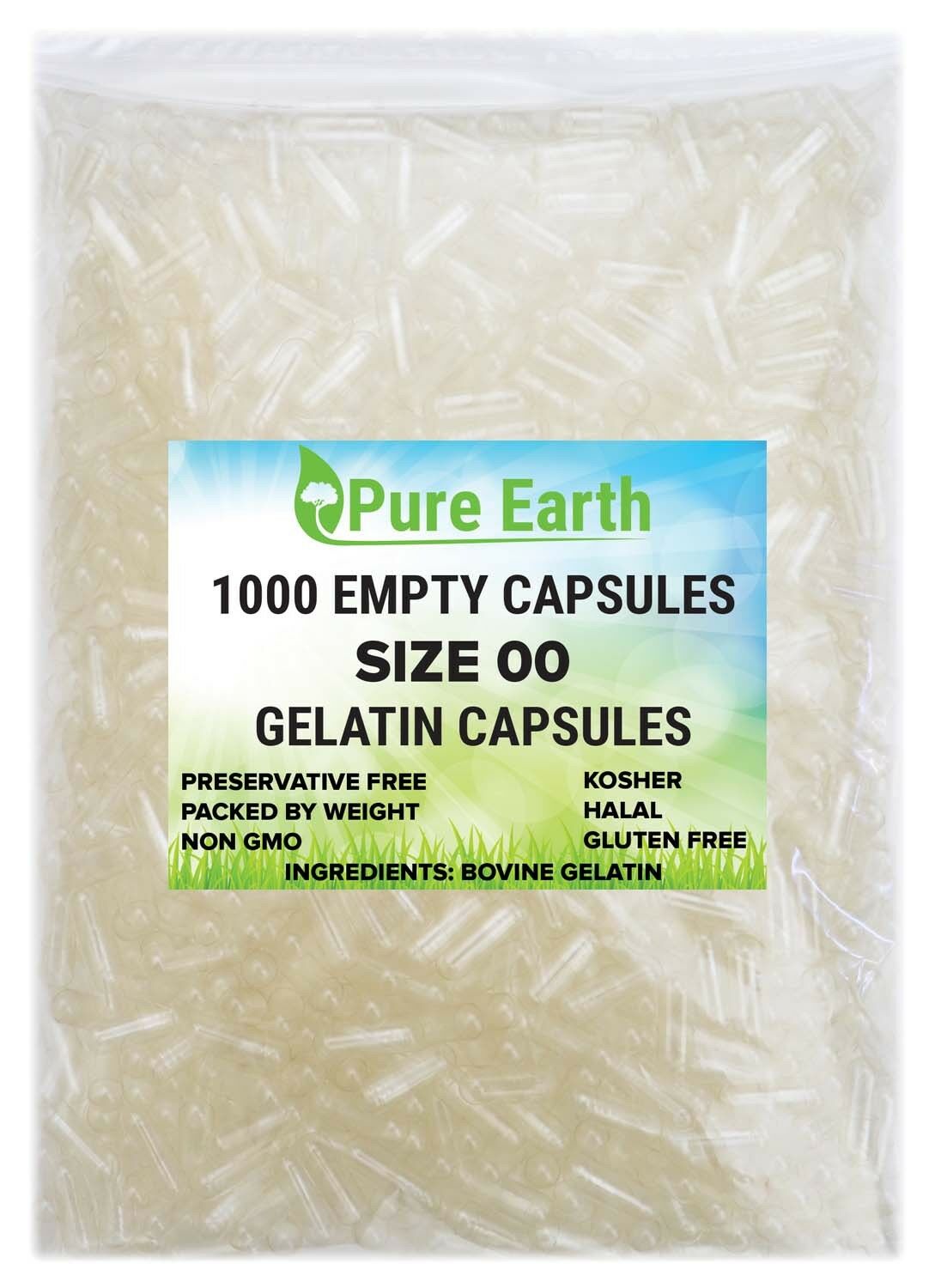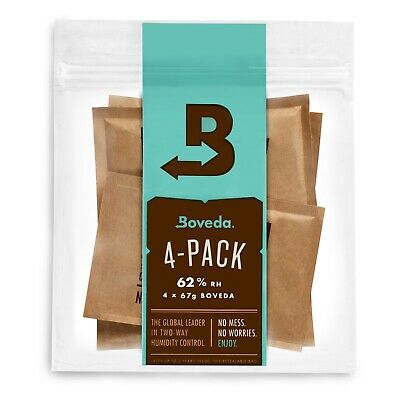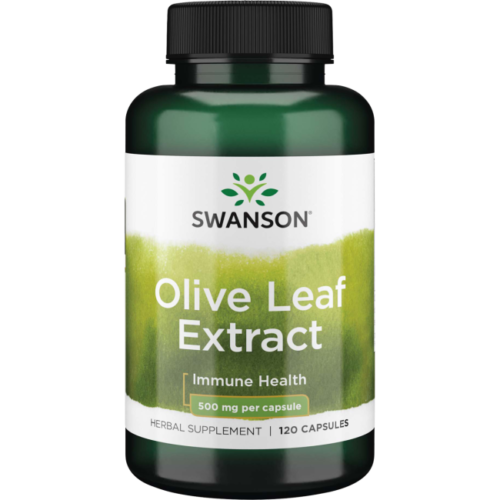-40%
Dr. Herbalist 100% Pure Garden Cress Seeds I Lepidium sativum I Halim Aliv I400g
$ 9.49
- Description
- Size Guide
Description
Dr Herbalist 100% Pure Garden Cress Seeds - Lepidium sativum - Halim Aliv 400gm F/S !!Garden Cress
is a good source of iron, folate, vitamins A, dietary fiber, iron, calcium, vitamin C, vitamin E, and protein. The
seeds
parts of the
garden cress
are also very nutritive and they are rich in ascorbic acid, arachidic acid, folic acid, linoleic fatty acids, beta-carotene, and iron.
Garden cress (Lepidium sativum) is also known as halim is an edible fast-growing herb which is native to Persia. Garden cress belongs to the cruciferous family and is linked to mustard, pepperwort pepper grass and watercress. Stems, seeds and leaves of garden cress are palatable but only the leaves and stems are eaten raw in salads or used for other culinary purposes. The properties of garden cress (Lepidium sativum) have been recognized for centuries in India and Europe. Garden pepper cress, peppergrass, mustard and cress, poor man’s pepper or pepperwort pepper grass is some of the common names of garden cress. Due to its unique flavor and higher nutritional value, garden cress makes a tasty and healthy addition to salads and sandwiches. Popular varieties of garden cress include Crinkled, Wrinkled, Crumpled, Curly and Persian.
Benefits of Garden Cress
Properties
Both the leaves, stems and seeds of garden cress are used in preparing traditional med, for example, the seeds are used for minimizing asthma symptoms as well as improves lung function in people suffering from asthma. Also, garden cress can be used for treating patients suffering from bleeding piles.
The garden cress seeds contain phytochemicals that are similar to estrogen, therefore, consuming them helps to make irregular menstruation become more regular.
Garden cress seeds can be eaten to relieve the symptoms of constipation and indigestion.
Garden cress seeds can be chewed or blended and mixed with honey, which is taken as an expectorant for help with cold, headache, asthma, sore throat and cough.
Garden cress seeds are used for patients suffering from iron deficiency anaemia. Consumption of these seeds helps to boost the haemoglobin level over time.
Garden cress is characterized by peppery, aromatic and tangy flavour. It can be eaten raw in salads and sandwiches or used as herbs for food seasoning. The seeds can also be roasted with salt before eating.
Garden cress seeds can be blended with water and honey to form a thick paste that can be applied on the skin to treat sunburn, irritated skins, dry skin and broken lips.
Garden cress is an excellent source of protein and iron thus can be used for treating people suffering from hair loss.
Consumption of both garden cress stems, leaves and seeds help to boost the immune system.
Consuming garden cress helps to stimulate the mammary glands to start producing milk in lactating mothers. Due to this powerful property of garden cress, new mothers are encouraged to eat food containing garden cress to facilitate milk production. Moreover, due to the high protein and iron contents of garden cress, it is ideally given post-partum to breastfeeding mothers.
Consumption of garden cress greatly helps to improve and boost libido.
Garden cress can be used as a laxative and purgative for patients suffering from constipation. Garden cress seeds can be blended and mixed with honey, which is used for treating diarrhoea and dysentery. Garden cress can be blended and infused with hot water, which is used for treating colic, especially in children.
Garden cress seeds have antioxidants that help to prevent free radicals from damaging the body cells. Due to this property, it can serve for protecting the body from cancerous growths.
It is an excellent source of folic acid, vitamins C, dietary fibre, iron, calcium, protein, vitamin A, folate and vitamin E. The seeds of garden cress are also highly nutritive and they contain ascorbic acid, tocopherol, folic acid, calcium, linoleic fatty acids, iron, beta-carotene and arachidic.
Garden cress seeds contain arachidic fatty acid and linoleic acids thus can serve as a memory booster.
“
This statement and/or products has not been evaluated by the Food and Drug Administration. This product is not intended to diagnose, treat, cure, or prevent any disease.”
